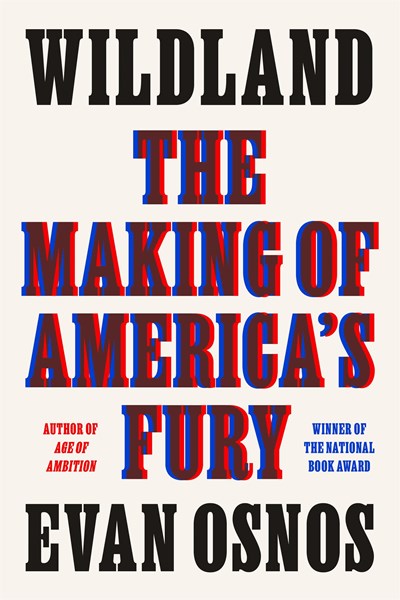Wildland by Evan Osnos
A clear-eyed and exhaustive examination of the temperature of our cultural body with evidence of misdoings and prescriptions for a cure.
I heard Evan Osnos on television speaking about his new book and was so impressed by his reasonable tone and clear-eyed delivery that I felt compelled to purchase the book. His investigation into the reasons for the vitriolic nature of our current social discourse is enlightening and frightening at once, but there’s hope here, too. As a long-time print journalist his methods are of the traditional type, one-on-one interviews done in person, venturing into places and situations that would keep most of us cowering at home, lights off and doors locked.
We have allowed a particularly insidious form of oppression to occur and in fact have even enabled it. The pursuit of profit has rendered considerations of the well-being of others to be eclipsed and even celebrated. Think: outsourcing jobs, hostile takeovers and dissolution of companies employing thousands of workers, allowing lobbyists to write laws that defend their clients and endanger the health and welfare of entire populations. These activities have resulted in the obscene enrichment of a miniscule portion of our citizens at the expense of hundreds of thousands and perhaps millions of ordinary folks. The disenfranchisement of communities of color has been a recognized evil for some time but it is finally recognizable that white, mostly low-income workers have been subjected to a similar fate. The coal, oil, chemical and pharmaceutical industries have engaged in dangerous and deleterious practices that have resulted in the sickening, impoverishment and addiction of whole segments of the American public with impunity. That these citizens should be enraged and easy prey for populist rhetoric promising relief from their misery should surprise no one. As with previous authoritarian regimes, a target for unrest is immigrants and people of different ethnicities than the majority. The result is the extremely vituperative tenor of public discourse surrounding numerous issues from immigration to vaccine mandates. The rage in black America has been inoculated into the white portion of the country. It all springs from inequity and disregard for the humanity of the people who actually make things work for the benefit of hedge fund mangers, money traders and politicians who produce no product, provide no service, but are themselves enriched by the suffering and poverty they cause. This has projected itself onto the political landscape and become a “red vs blue” issue when in fact it has little to do with the true behavior of our governing bodies. Both major parties have bloody hands in this melee, and the citizenry no longer trusts anything they do, and rightly so.
Osnos lays this out backed up by exhaustive personal research in interviews with members of the public, politicians, business leaders, the wealthy and the poor. He has made forays into dangerous country, going among the rioters on Jan.6 in Washington, D.C., into the South Side of Chicago’s African American community, the hollers of West Virginia, all with notable courage and determination. This is the real deal, not just some academic combing of books on the subject. In spite of the grim nature of the work, his prose is uplifting and hopeful and his observations provide hints of benign powers at work that might provide solutions, but only if we pay attention to what is happening and take steps to change how our society works. It is my belief that every conscientious citizen of our nation should read this book, or at least be aware of its conclusions.



